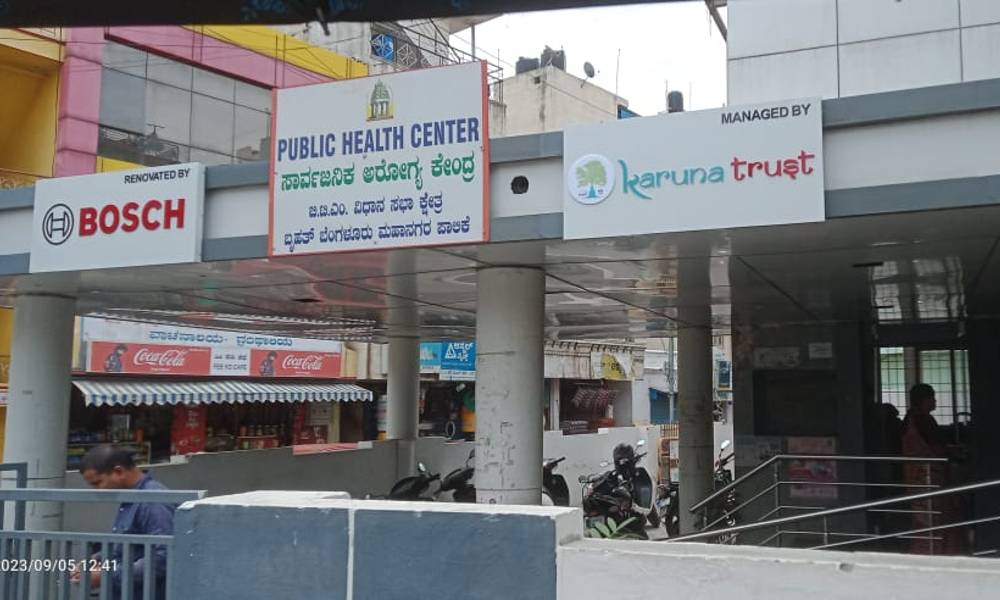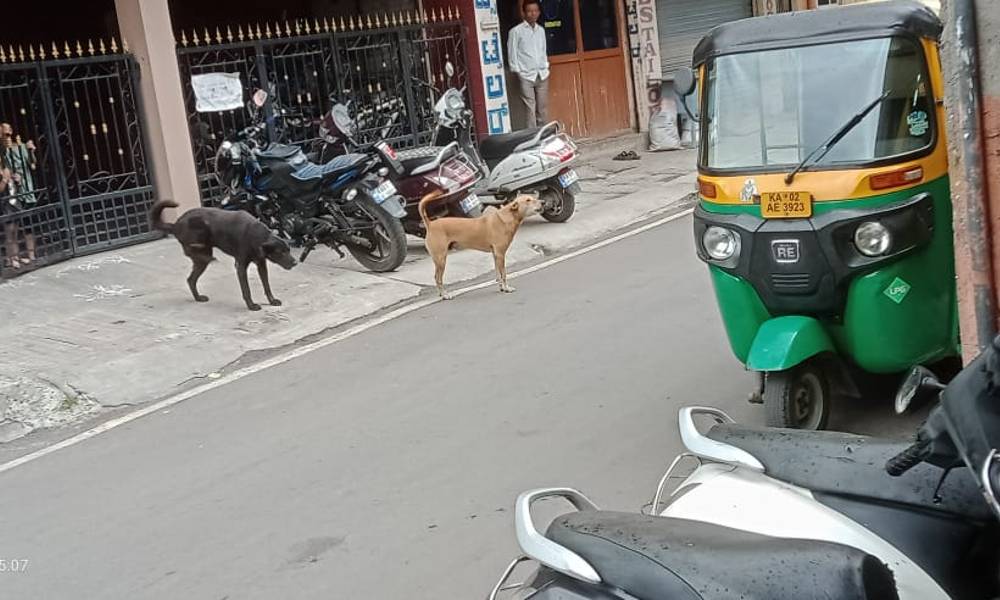Urban Primary Healthcare Centers (UPHCs) in Bangalore are hit by a shortage of anti-rabies vaccines (ARVs). In about 120 of the 160 UPHCs in the city, ARVS are in short supply.
Around 120 of the 160 UPHCs in Bangalore are faced by a shortage in the number of anti-rabies vaccines, according to data by the Bruhat Bengaluru Mahanagara Palike (BBMP) health department. PHCs in BBMP South, West and East Zone lack ARVs. Meanwhile, 860 dog bite cases have been reported to the civic body from January to April 2023, and cases are still being reported, said BBMP health department officials.
According to the Indian Public Health Standards For Primary Health Centers published by the Directorate General of Health Services, Ministry of Health And Family Welfare, Government of India, rabies vaccines in the form of injections should be available in every PHC for “specific group of individuals”, that isfor all who might need it.
The AMO of the Jayanagar UPHC (South Zone), Dr. Sahana said, “We had 150 dog bite cases from Jan 2023 till now. We had insufficient stock of ARV. We had shortage for around 50 patients. We usually refer them to neighboring PHCs or General Hospitals.”

A lab assistant working in a Adugodi PHC, in the BBMP South Zone, said that anti-rabies vaccines are not available in the PHC. Pantarapalya UPHC in the West Zone is also facing a shortage of anti-rabies vaccines at present, said the Administrative Medical Officer (AMO) Dr. Shobharani.
In addition to that, the vaccine seems to be in short supply in private drugstores as well. Manu Sweth, a worker at the S.L.V. Pharma and Vaccine distributors, says that they have been facing a shortage in the ARV supply to their store since the last three months.
BBMP Chief Health Officer (Public Health), Dr. A.S. Balasundar said that the stock and availability of drugs in the state is overseen and managed by the Karnataka State Drugs Logistics and Warehousing Society (KSDLWS), and when situations like these arise, the KSDLWS instructs nodal officers to notify district drug dealers about the crisis to ensure their availability at the earliest. Dr. Balasundar added , “This is a big issue, especially if dog bite cases rise.”
Fatima and Ayesha are residents of Adugodi. They said that although they could not recollect the exact numbers, around ten to twelve people from their area had been bitten by dogs this year. However they did not know if the victims had received ARVs in the UPHCs.

According to the Rabies Vaccine Information Statement published by the Centers for Disease Control and Prevention, which is the national public health agency of the United States, rabies is a serious illness that is almost always fatal. Rabies vaccine can prevent the diseaseif given to a person after exposure to a dog bite “The vaccine should be given as soon as possible after an exposure but may be effective any time before symptoms begin. Once symptoms begin, rabies vaccine is no longer helpful in preventing rabies,” according to the statement.
On March 24, 2023, the Ministry of Fisheries Animal Husbandry and Dairying and Ministry of Health and Welfare jointly launched ‘National Action Plan for Dog Mediated Rabies Elimination (NAPRE) from India by 2030’. According to NAPRE’s plan outline and guidelines, the program advocates for:maintenance of a regular uninterrupted supply of Anti Rabies Vaccine (ARV) and Anti Rabies Serum (ARS) up to PHC level.”
“There is no cure for rabies once someone gets it. The only way to prevent it is with proper vaccination regimes. Once the disease has set in, symptoms like photophobia (fear of light), hydrophobia (fear of water) occur. The patient is bedridden and kept in a dark room.” says Dr. Pratiksha Saharia, a medical officer at Sipjhar Community Health Center, Assam. She further emphasized the need for ARVs in all PHCs as, “the disease is 100 percent fatal, but also 100 percent preventable” with the help of vaccination.




